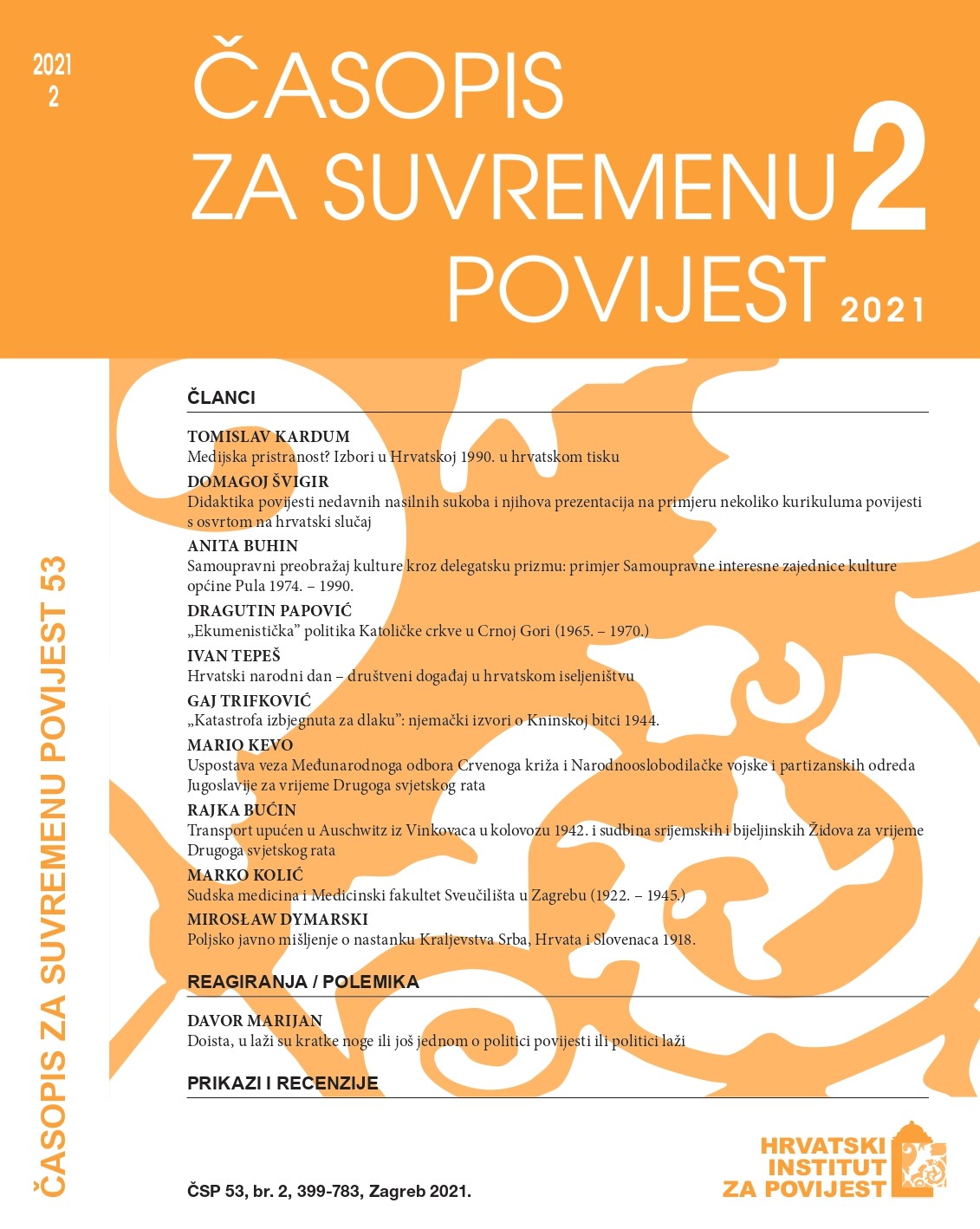Hrvatski narodni dan – društveni događaj u hrvatskom iseljeništvu
Croatian National Day: A Social Event among the Croatian Diaspora
Author(s): Ivan TepešSubject(s): History, Ethnohistory, Politics and society, Politics of History/Memory, Politics and Identity
Published by: Hrvatski institut za povijest
Keywords: Croatian Peasant Party; Croatian National Day; diaspora, Yugoslavia; Canada; USA; Belgium;
Summary/Abstract: The Croatian National Day was a manifestation organised by the emigrant Croatian Peasant Party, which began to be held in 1946 in the southern part of the Canadian province of Ontario, where it also represented the largest concentration of Croatian emigrants in Canada. The manifestation was launched so that Croatian emigrants could socialise and entertain each other, but also took on a political character, gathering funds for ‘Dr Vladko Maček’s Fund for the Freedom of Croatia’, which was headed by the Main Committee of the Canadian Croatian Peasant Party and at the disposal of the party’s president, Vladko Maček. Starting in 1950, manifestations also began to be held in northern Ontario and Belgium. The organisation of manifestations soon spread to the Pacific coast of North America, so that Croatian National Days were held in Portland from 1953 to 1964 and in Vancouver from 1958 to the end of the studied period. Significant Croatian National Day events were also held in Cleveland from 1962 to the mid-1980s. Croatian national consciousness was expressed at the manifestations, which was highlighted in the Peasant Party’s promotional activities before the manifestations, but also at the manifestations themselves, when holy masses were served for the June victims, Archbishop Aloysius Stepinac, and the Bleiburg victims. National consciousness was promoted by displaying flags with Croatian national symbols and promoting Croatian traditional clothing as well as a cultural-artistic programme carried out at the manifestation itself. Peasant Party members also used the manifestation for spreading their political messages, demanding a free and independent Croatia, at the same criticising the Yugoslav regime as Communist, undemocratic, and dictatorial, and claiming the people were prisoners in their own homeland. The political character of the manifestation was also apparent in the presence of guests, who were mostly Croatian émigré politicians and local politicians, who held their speeches during the official part. Apart from Croatian national consciousness, Croatian emigrants in Canada and the USA expressed their loyalty and respect towards their new homelands, holding manifestations on their respective Independence Days. As regards the number of attendees, one can presume that tens of thousands of Croatian emigrants from Canada, the USA, and Belgium participated at the manifestations in the 1945–90 period.
Journal: Časopis za suvremenu povijest
- Issue Year: 53/2021
- Issue No: 2
- Page Range: 517-548
- Page Count: 32
- Language: Croatian

